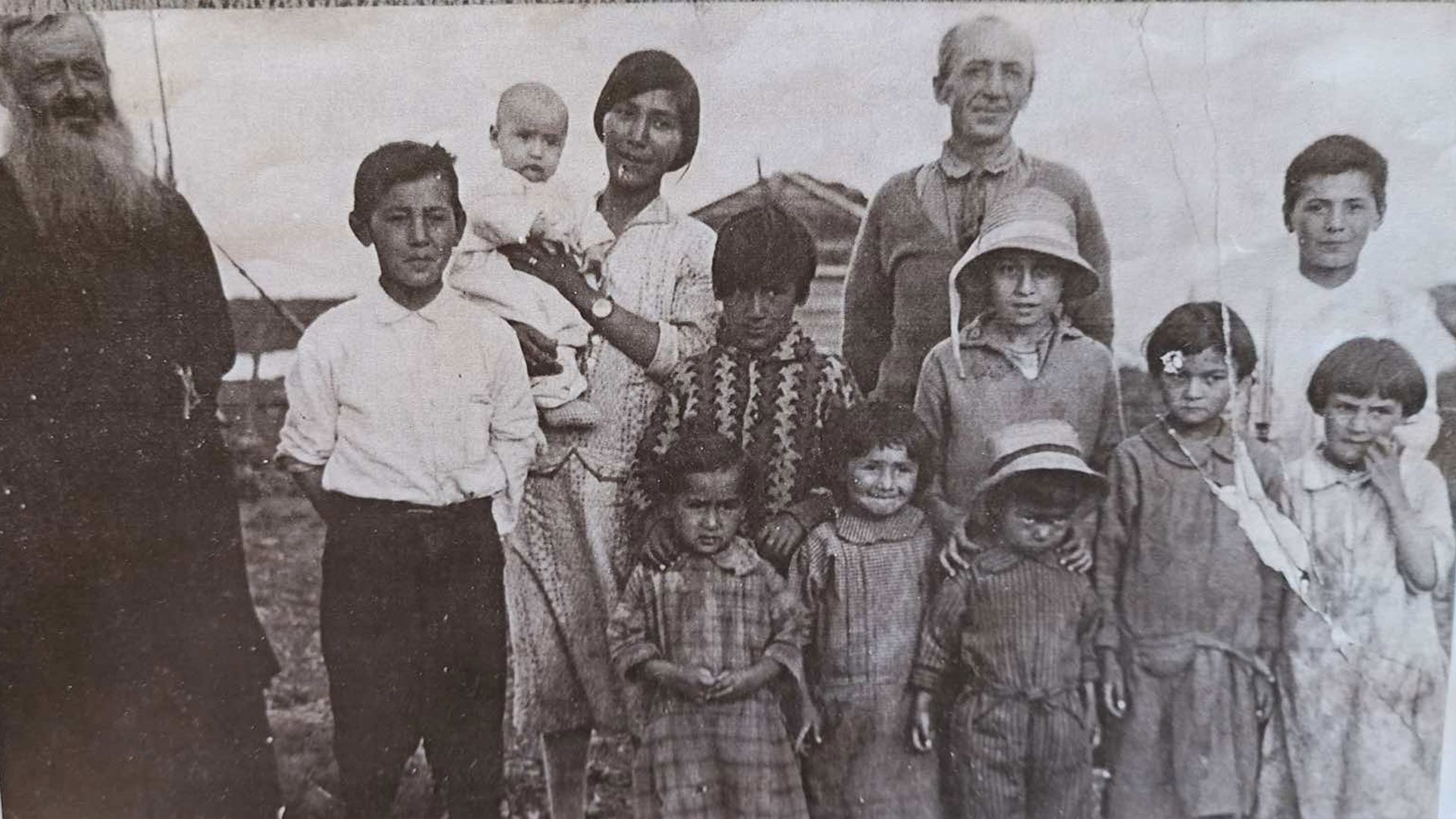Accompanied by 12 other cousins across Turtle Island, Laura Horten and Sue Sirrs embarked on a significant journey to retrace their roots in Denendeh, Northwest Territories.
After the family was relocated most of their cousins had never visited the ancestral land.
It was time to trust in pursuit of reunification. After 18 months of meticulous planning, each of them hopped on planes headed north.
“Living on the Rainy River reserve back home when some people come home the family circles around, but other times I’ve seen people shy away, nervous about what is it that you want from them,” Horten said.
“We would go on to meet a lot of people like Charlotte, Georgina’s cousin who never knew what happened to Georgina’s children when she died,” Sirrs said. “To be able to meet us and know that the family continued is incredible.”

Horten’s grandmother, Georgina Blondin, was a Sahtu Got’ine from the Tulita and Fort Good Hope area, while her grandfather, Bill Boland, was of Welsh descent and was employed by the Hudson’s Bay Company.
Blondin became ill with tuberculosis in 1932. Just before her death at the Royal Alexander Hospital in Edmonton, she asked her nurse, Ruth Lee, (who is Sue Sirrs’ grandmother) to wed her husband and help bring up their seven children, ranging from one to 13 years old.
Lee followed through with her decision, leading to her and Bill starting a family of three children and relocating to Ontario.
“We’re members of Tulita band, and we’re members of the Sahtu land corporation, but without living on the land touching, feeling and swimming in Great Bear Lake,” Horten said. “We’re leaving some DNA and making the connections here.”
Growing up in Treaty 3 territory, Horten absorbed the wisdom of the Ojibwe teachings.
“It was one of the things my mom was always sad about; she only had one language until she and her sisters were on their deathbeds, and they were speaking slavey from their childhood memories,” Horten said.

The grandchildren of Blondin and Lee travelled more than 3,000 km to learn about their family history.
After landing in Yellowknife, they bussed down to the South Slave communities of Hay River and Fort Resolution. Their children were taken from their homes and forced to attend to St. Joseph’s Residential School.
The cousins held a ceremony to honour their great Uncle Archie who died at the institution.
After this, they flew to the Sahtu for a tour of Norman Wells, Deline, Fort Good Hope, and Tulita. They were greeted by many, and even one cousin boated up the Mackenzie River from Fort Simpson to Tulita.
He recounted the story of their great-grandfather, who was laid to rest where oil would emerge from the ground, the same black gold that triggered the signing of Treaty 11 in Fort Norman, presently known as Tulita.
Day and night they engaged in traditional activities like Dene hand games, fish preparation, drumming and storytelling.
“I hadn’t ever seen the dene laws before, and I was so moved, and the sharing and inclusion,” Sirrs said.
Their coming left an impression on the Sahtu as well. Cousins such as Ethel Blondin Andrew in Norman Wells, told APTN News of the importance of families to learn from the past to advance together.
“It sets the bar high for other people to do the same thing,” Blondin Andrew said. “To honour their ancestors and plan work for the next generation to not forget their ancestry and their homelands.”
Every stop made was marked by a ceremony. All the cousins brought water from their respective homes to share in Great Bear Lake.

“We were able to put our cup in the lake and drink that water,” David Anderson said. “It was powerful because we don’t know anywhere in Ontario where you can do, and we felt our with us.
At the old trading post cabin of Bill and Georgina in Dease Arm on Great Bear Lake, Wayne and Dave Anderson put tobacco down where their mother was born.
Wayne Anderson’s self-perception has been boosted by the journey.
“Growing up, people would ask where I’m from, but I had no sense of identity as a people,” Anderson said. “I’m Dene, I know that and I’m from Tulita, but have I ever been there?”
The trip served as a healing experience for Sue, allowing her to transition from grief to a sense of hope.
“There are so many of us here for portions of the time that it’s our responsibility to share with the rest of our families back home about the community, the goodness and light that’s in the north,” Sirrs said.
Despite some trepidation, Horten encourages anyone whose family was displaced from their homelands to make the journey back.
“The fear of not being remembered, the pain of not touching the land, the knowledge of why it was that the family was taken away in the first place,” Horten said. “So, to finally come home again is just amazing.”










